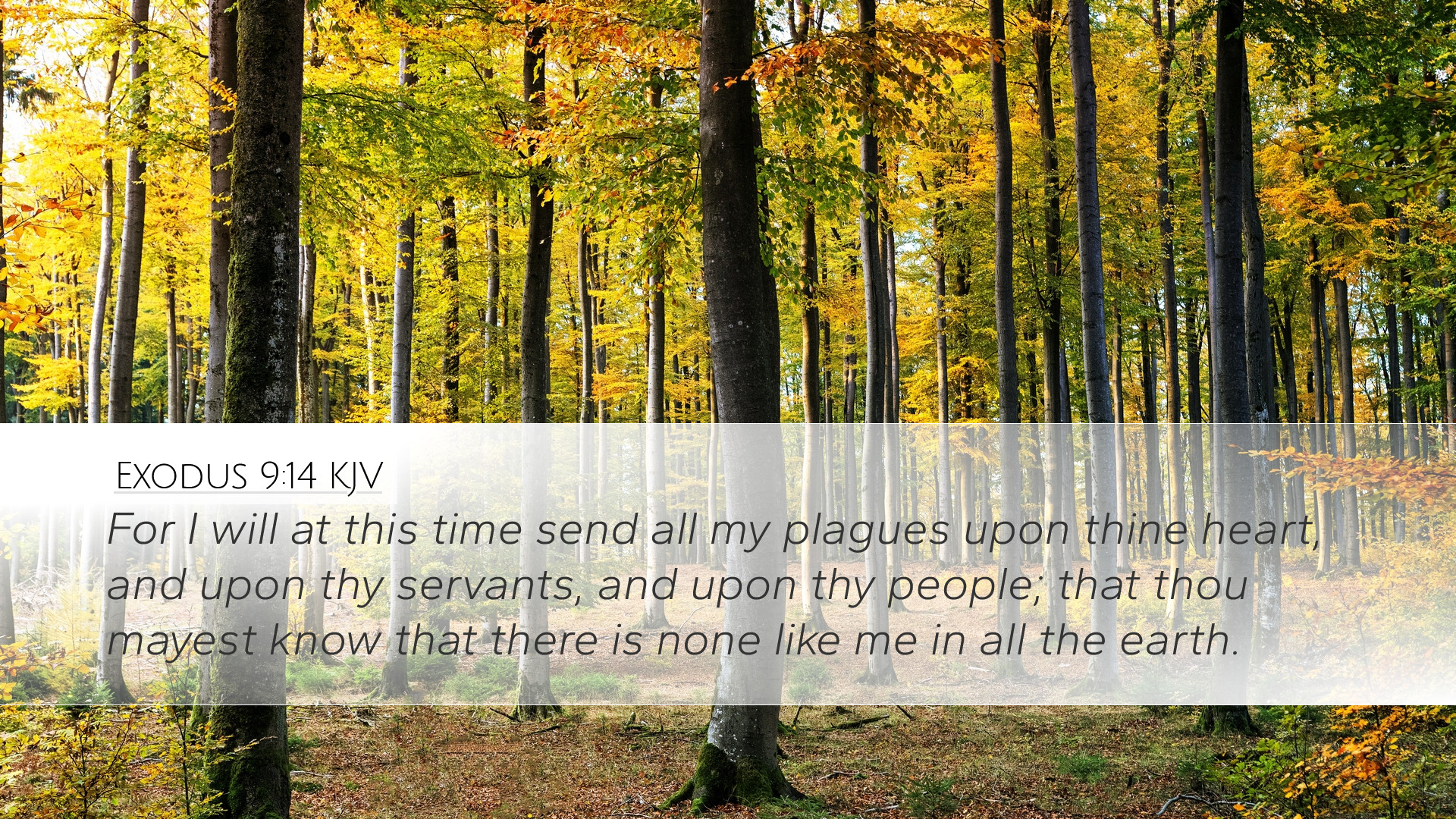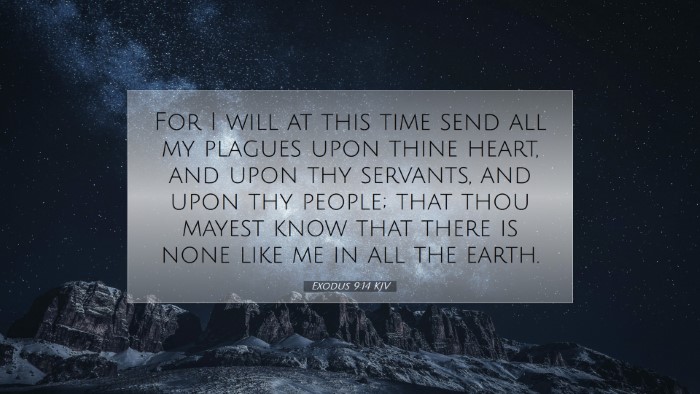Commentary on Exodus 9:14
Contextual Overview
Exodus 9:14 states, "For I will at this time send all my plagues upon thine heart, and upon thy servants, and upon thy people; that thou mayest know that there is none like me in all the earth." This verse occurs within the narrative of the plagues of Egypt, where God is demonstrating His power over Pharaoh and the Egyptian gods. It serves as a theological foundation for understanding divine judgment and human rebellion.
Insights from Matthew Henry
Divine Justice and Mercy
Henry emphasizes that this plague serves as an avenue for God's justice, showcasing His right to execute judgment. He notes that God's purpose is redemptive, aiming for Pharaoh to recognize His sovereignty. This concept suggests that divine discipline is rooted in a desire for repentance and acknowledgment of God's power.
God's Sovereignty
Henry articulates that the phrase "that thou mayest know" serves to highlight God’s intent for revelation. It underscores that the plagues are not merely acts of retribution; they are also mechanisms for understanding divine authority. Henry posits that this awareness is essential for Pharaoh, as it contrasts the impotence of the Egyptian gods.
Insights from Albert Barnes
Theological Implications
Barnes discusses the broader theological implications of this verse, noting that the assertion of God's uniqueness is central to Hebrew monotheism. He remarks that the plagues are a demonstration of God's might, revealing a coherent narrative that challenges the societal beliefs of the Egyptians who worshipped multiple deities.
Purpose of Plagues
In Barnes's view, the plagues serve to refine the understanding of worship among the Israelites as well. They are a reminder that the God of Israel is far superior to any earthly power. This enables a deeper relationship based on trust and reverence, forming the foundation of the covenant God has established with His chosen people.
Insights from Adam Clarke
Historical Context
Clarke offers a detailed examination of the historical circumstances surrounding the Exodus narrative. He elaborates on the cultural significance of heart and service; that is, God is not only targeting Pharaoh but also the entire Egyptian hierarchy. This collective experience of suffering serves to provoke widespread reflection on the nature of divine authority.
Pastoral Application
Clarke's analysis implies that spiritual leaders today can draw parallels from this text to encourage congregations to ponder the workings of God's justice in their lives. He asserts that the plagues invite believers to reflect on their own stubbornness against the divine call.
The Nature of God’s Plagues
- Mechanisms of Revelation: The plagues serve as pedagogical devices that reveal God’s character, allowing both Egyptians and Israelites to learn about His justice and mercy.
- Historical Learning: Reflecting on historical calamities can lead to theological insights about the balance between divine wrath and mercy.
- Call to Repentance: The plagues function as a divine invitation to repentance—an opportunity to shift from hardened hearts to humble submission before God's authority.
Applications for Theologians and Students
Exegesis and Context: The study of Exodus 9:14 necessitates a robust exegetical framework that considers the socio-religious dynamics of ancient Egypt and Israel.
Theological Reflection: The passage encourages continual reflection on God’s sovereign authority in the light of modernity’s challenges to faith.
Ethical Considerations: Questions regarding divine justice invite further discussions on ethics in ministry and the importance of addressing sin within oneself and the broader community.
Conclusion
Exodus 9:14 is not merely a historical account but a foundational text that invites both contemplation and action. The insights from Henry, Barnes, and Clarke urge present-day readers—pastors, students, and scholars—to engage with this scripture in a manner that fosters spiritual growth, ethical integrity, and a deeper understanding of God's nature. Through the lens of the plagues, we can explore themes of divine sovereignty, justice, and mercy, which remain as pertinent today as they were in ancient times.


